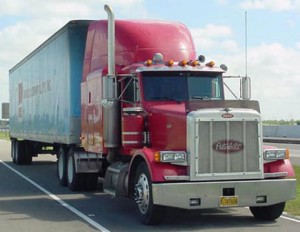 Professional truck drivers face some of the most challenging situations a working professional can face. The stress that amounts because of these challenges is the kind that many people are unequipped to deal with. Unlike in many businesses, truck drivers work alone. If something goes wrong or they are in need, a phone and a radio are the only connection they have to people they know who can support them. Therefore, truck drivers are forced to be fiercely independent workers, and the stress of isolation can lead many into unhealthy habits, such as addiction and substance abuse.
Professional truck drivers face some of the most challenging situations a working professional can face. The stress that amounts because of these challenges is the kind that many people are unequipped to deal with. Unlike in many businesses, truck drivers work alone. If something goes wrong or they are in need, a phone and a radio are the only connection they have to people they know who can support them. Therefore, truck drivers are forced to be fiercely independent workers, and the stress of isolation can lead many into unhealthy habits, such as addiction and substance abuse.
Alcoholism is one of the most common addictions that truck drivers face. Alcohol is used universally to reduce stress, but is also one of the most commonly abused substances for people who cannot limit themselves. It is very common for people to try to self medicate using alcohol and end up being far too dependent on it. Truck drivers largely have the sense not to abuse alcohol while they are driving (although some do not), but many turn to it at the end of shifts to wind down for the night.
Drug use is another addiction seen frequently among truck drivers. This addiction also applies primarily to off work hours, but some truckers abuse drugs on the job, creating a very dangerous situation for themselves and for everyone on the road. Many truckers come to a point where they cannot stand the silence and solitude of their truck cab any longer and begin experimenting with drugs to change their perception of things.
Sex addiction is the other most common outlet for addictive tendencies in truckers. The lonely time spent in the cab of the truck often leaves truckers sexually frustrated and seeking an outlet. Sadly, many of them turn to prostitution, pornography or promiscuity to ease sexual tension and become addicted to sex in doing so.
If you or someone close to you is a trucker in need of addiction treatment, seek help today. You should be aware that there are rehabilitation programs created specifically for people in trade jobs such as trucking. Programs are available that are suited entirely to your needs.


